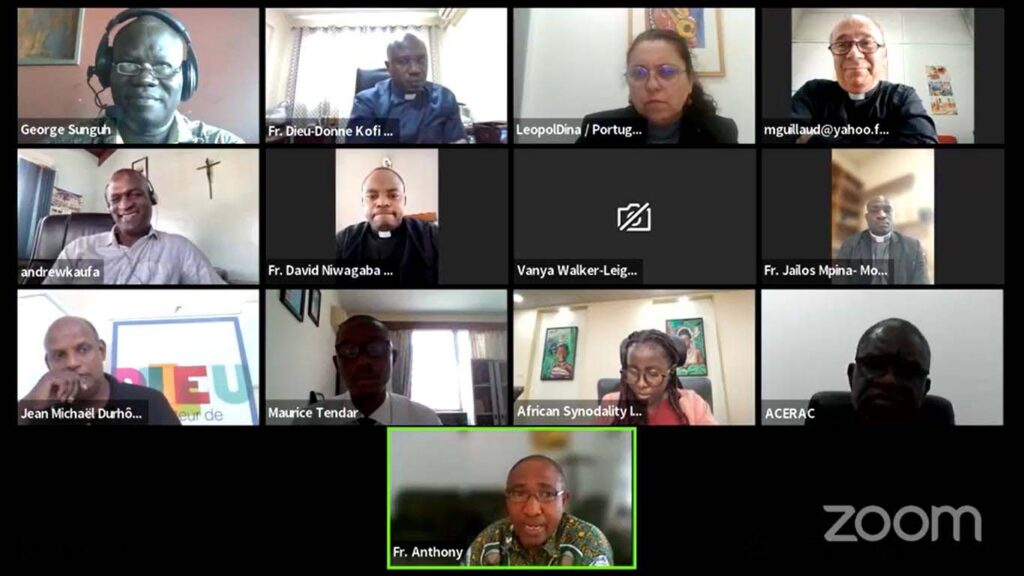SECAM: Synodal Outcomes and Challenges in the African Region: Secretaries General

Sr. Jecinter Antoinette Okoth, FSSA
At a virtual session that brought together Secretaries general from the sub-regional Episcopal bodies of the Continent that form the Symposium of Episcopal Conferences of Africa and Madagascar (SECAM), the Church officials have shared some of the challenges and outcomes realized in Africa during the synod process.
During the second stage of the synodal process the Church invites various continents to continue discerning and listening to the voice of the Spirit through the use of Working Document for the Continental Stage.
Speaking during the online session that was convened by general secretariat of Rome and SECAM to address the Catholic media, Bishop Luis Marín de San Martín, the Under Secretary of the General Secretariat of the Synod noted that Africa region needs to acknowledge the aspect of cultural diversity in the synodal process as they listen to each other through the Holy Spirit.
“Just as the word of God incarnated itself in history, so too the Synodal process needs to eventually take decisions that recognize and are enriched by the cultural diversity of Africa and other continents. This cultural diversity will enrich the universal Church,” Bishop de San Martín a member of the Order of St. Augustine (OSA) said.
In their presentations to the journalists for the first reflections for the final phase of the continental stage of the Synod for Africa Secretaries general pointed out common challenges to the entire continent.
According to the Secretary General of the Association of Member Episcopal Conferences in Eastern Africa (AMECEA) Fr. Anthony Makunde, “Listening process is taking place in a mixed society environment hence the region does not have a setting where Catholics are predominant but has a mixture of denominations.”
Citing other areas of challenges the cleric said that traditional faith are still active in various countries thus influencing the listening, a good number of countries have a political instability conflicts coupled with issues of religious extremism which are rampant in various conferences.
Additionally, he said, “The Church should do more to strengthen the concept of Church as family of God by going back to the fundamentals of marriage and family life since there are concerns on Cohabitation, early marriages, polygamy union forced marriages and teenage marriages.
During the press conference on Tuesday, January 17, The Church in Africa also reflects on mission and evangelisation and about the relationship with civil society, particularly with culture, politics and justice, and the conclusions point to the need to “accompany people” so that the Church “can contribute to the development of society”.
On his part the Director of the Inter-Regional Meeting of the Bishops of Southern Africa (IMBISA) Fr. Rafael Baciano Sapato emphasized on reinforcing the image of families in Africa and on the African culture.
“The image we have in our region is still the Church as a family. We are hopeful that this process is going to reinforce the image of families, since everybody is taking synodality into account,” he said.
“We need to move forward in terms of inculturation. Until now we realize that inculturation is above all related to liturgy, but there are other aspects of our faith which are rooted in our culture,” the Cleric of Mozambique’s Lichinga Diocese added.
The online virtual session follows the first continental meeting that was held in Accra, Ghana prior to the second one to be convened in Kenya from 23-25 January and finally in Addis Ababa, Ethiopia in the month of March.
The last Continental Synodal Assembly for Africa and Madagascar will comprise of 155 delegates: 27 laywomen, 26 laymen, 16 young girls, 16 young men, 5 seminarians, 5 novices, 8 brothers, 12 sisters, 18 priests, 15 bishops and 7 cardinals.


